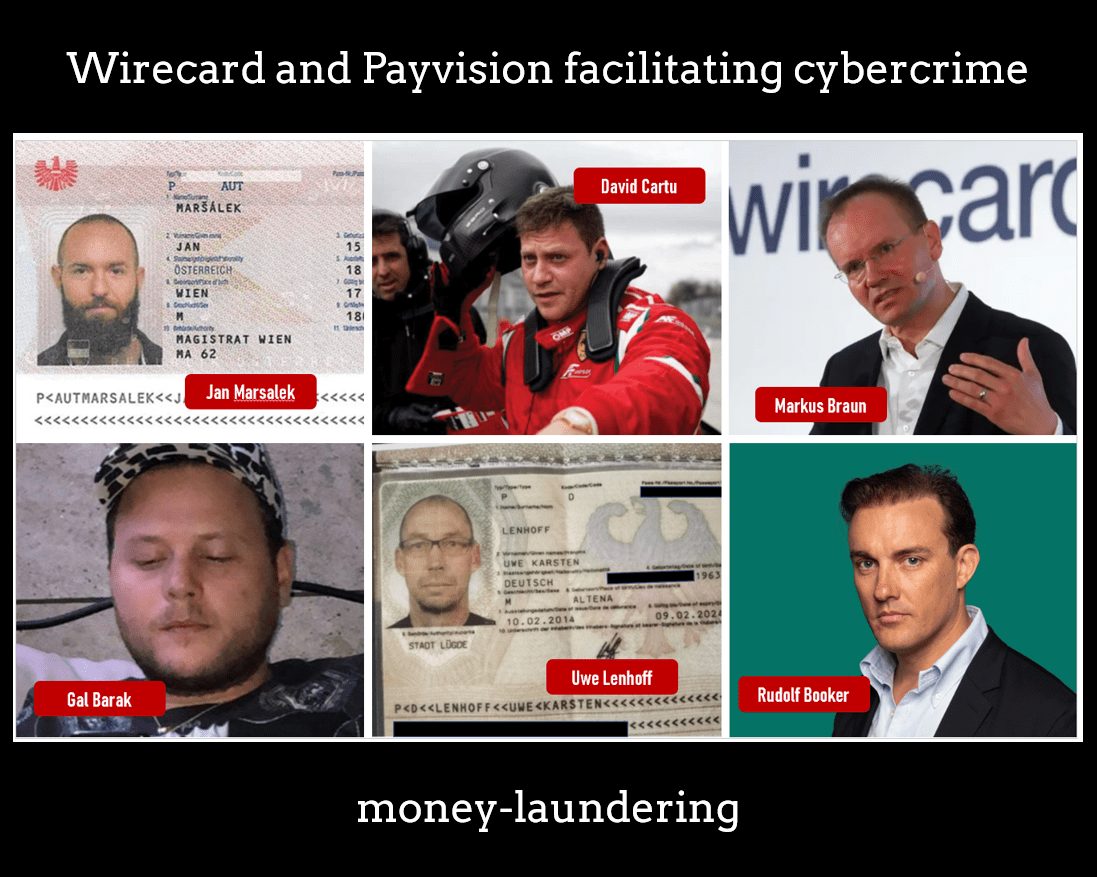A crown witness and some arrests
Surprise, Surprise! The Wirecard madhouse was run by a criminal organization, says the German public prosecutor on July 23, 2020. The former managing director of the Dubai subsidiary of Wirecard, the German Oliver Bellenhaus, is said to have made corresponding statements as a key witness. The public prosecutor’s office has allegedly been able to confirm and support these statements with facts. Consequently, the former CEO and main shareholder Markus Braun, the former CFO Burkhard Ley, and the former head of accounting were arrested. The former COO, the Austrian Jan Marsalek remains on the run. Whether he is actually being protected or held by the Russian secret service in a place near Moscow cannot be confirmed. The Kremlin of course denies this.
Losses and criminal organization
According to the German public prosecutor’s office, the criminal charges had to be extended “quite considerably”. The four managers and their accomplices are said to have been inflating Wirecard‘s balance sheet total and sales volume by pretending to generate income as early as 2015. This had been revealed by the comprehensive testimony of crown witness Bellenhaus. The spokeswoman of the public prosecutor’s office said that the operating business had been making losses at the time.
The accusations of the public prosecutor’s office amount to the fact that the Dax Group had possibly been run by a criminal gang since 2015 – an unprecedented occurrence in the history of the German stock market’s top league. The investigators put the damage to banks and other investors at 3.2 billion euros.
The dark empire
In view of the publicly-known fact that Wirecard was massively involved as a payment processor in the illegal Israeli binary options fraud industry from 2014 at the latest, the new findings of the public prosecutor’s office are no surprise.
FinTelegram has plenty of documents and evidence that prove beyond any reasonable doubt that Wirecard knowingly and intentionally got involved in this fraud industry. It has supported the operators of the large Israeli broker-scam networks. These, in turn, have invested in Wirecard shares. In addition, many unregulated Israeli payment processors, FinTechs, and third-party acquirers have emerged in the Wirecard environment, developing the dark business of the DAX company.
In addition to the binary options, Wirecard was apparently involved in numerous other illegal transactions. Yes, Wirecard at least since 2014 the center of a worldwide cybercrime industry. But in addition to the German Wirecard in this epicenter of cybercrime, there was also the Dutch Payvision.
What about Payvision?
The entire financial world, the media, and prosecutors currently looks at Wirecard. It is certainly the biggest case but certainly not the only one. It has been a well-known “secret” that the international fintech scene is populated with many bad actors like Wirecard, Payvision, or the Israeli Bruc Bond (previously known as Money International). These Fintechs have specialized in the segment of high-risk and cybercrime and made a lot of money with it. In April 2020, the Bank of Lithuania revoked the license of Bruc Bond for the company’s systematic violations of regulatory provisions. This is what BaFin should have done with Wirecard, too, shouldn’t it?
Wirecard was, along with the Dutch payment startup Payvision of Rudolf Booker, one of the payment processors of the suspected German Uwe Lenhoff and his cybercrime organization. Lenhoff was arrested in early 2019 and was to be charged with operating a criminal organization and money laundering. He was found lifeless in his prison cell on July 6, 2020. The cause of death is still unknown. Lenhoff has stated that he moves at least €2 billion annually with his cybercrime organization. Wirecard was one of his partners.
Even the Israeli Gal Barak, who is currently on trial in Vienna for investment fraud and money laundering, was one of Payvision‘s major customers with his broker scams and has laundered many millions through Payvision. At that time, Lenhoff was an affiliate of Payvision and acquired other cybercriminals like Gal Barak for the payment processor. All of this can be read in the respective court files of Lenhoff and Barak. There you can also find the Wirecard connection. The investigators in the Wirecard case should perhaps look at these files.
While Lenhoff died and Markus Braun was arrested, Rudolf Booker (LinkedIn profile) resigned as CEO of Payvision. He sold his company to ING at a valuation of €360 million. Based on his business with a cybercrime organization and a correspondingly inflated balance sheet. Like Wirecard but on a lower level.
It is high time for regulators and prosecutors to take a broader approach here. Wirecard is an occasion to clean up the international Fintech scene. This does not only concern Germany. So, let’s do it. Let’s clean up the fintech scene and take steps to prevent money laundering and protect investors.
